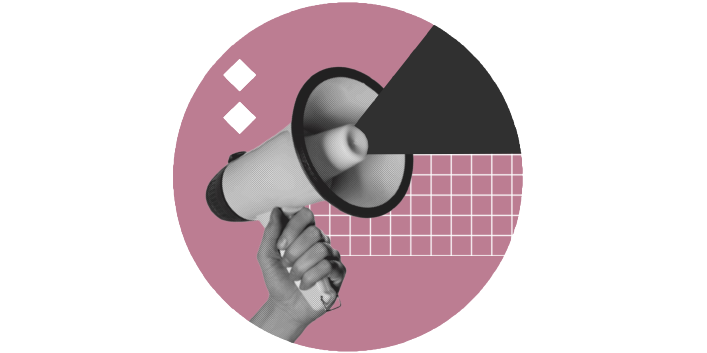
Since the beginning of russia's war against Ukraine in February 2022, there has been a growing interest in learning the Ukrainian language. According to Duolingo, one of the most popular language learning apps, Ukrainian is one of the fastest-growing courses on the platform. In addition, universities and language schools in English-speaking countries offer several Ukrainian language lessons and courses, indicating a growing interest in learning the language.
Why learn Ukrainian?
Learning how to speak a language is a never-ending process and an ambitious endeavour. There might be various reasons for learning Ukrainian:
- Cultural exchange. Ukrainian culture has a rich history and tradition, and learning the language can allow to understand better and appreciate this culture. By learning the language, English speakers can communicate more effectively with Ukrainian speakers, promoting cultural exchange and mutual understanding.
- Business and Trade. Ukraine is an emerging market with many opportunities for business and trade with other countries. Proficiency in Ukrainian can give English speakers a competitive edge in these markets by helping them communicate more effectively with Ukrainian customers, partners, and suppliers.
- Volunteering and travel. Before russia's full-scale invasion in 2022, Ukraine was a popular travel destination. It is a beautiful country with many historical cities, picturesque villages, and natural wonders. War makes it dangerous to travel to Ukraine. However, many foreigners come as volunteers to help and support Ukrainians in these difficult times. Even the basic knowledge of Ukrainian can enhance the travel experience by allowing English speakers to communicate more effectively with locals, read signs and menus, and understand the local culture.
- Personal Growth. Learning a new language can be a challenging but rewarding experience that can promote personal growth and cognitive ability. By learning Ukrainian, native English speakers can broaden their linguistic and cultural knowledge and develop a deeper understanding of the diversity of human languages and cultures.
In general, learning Ukrainian can provide many practical and personal benefits. This can open up new opportunities, enrich travel experience, and promote cultural exchange and understanding.
Ukrainian language vs. russian
Why choose Ukrainian?
For many years russian has been perceived as a more popular language to learn among foreigners than Ukrainan. So why choose Ukrainian? The answer is rather easy. Because learning Ukrainian in the current balance of power will give you more opportunities. After launching the full-scale war on Ukraine, russia has been losing on many fronts, including the economic one. Scholars at Yale Business School reported that more than a thousand international companies had curtailed or shuttered their businesses in russia, and more are to follow. This will hit labor productivity, consumers, and eventually the supply and production chain of russian industry. While russia's clock is ticking, it is inevitably falling into the abyss of dictatorship. russia's isolation in the international arena, scarce employment opportunities, and dangerous and oppressed social environment — are only some reasons why learning russian won't be beneficial.
On the contrary, Ukraine's international liaisons are thriving — new investment opportunities, intensification of international cooperation on multiple levels, need for foreign specialists for post-war reconstruction make learning Ukrainian a jackpot. If, maybe, you were interested in learning russian because you wanted to widen your knowledge of foreign cultures, don't worry. Ukrainian culture is rich and exciting, with much to offer those interested. Pro tip: learning a unique language will make you a valuable asset in the labor market. Maybe you already have the skills and knowledge in demand of Ukrainian employers, and you only need the ability to communicate with them in Ukrainian. So, don't hesitate!
How to start?
Learning how to speak a language is a never-ending process and an ambitious endeavour. To keep yourself on track and eager to learn throughout, you can set specific tasks for yourself and write down your motivation. Motivation depends on your reasons for learning Ukrainian. Maybe you need it for work, or you recently discovered your Ukrainian roots and family in Ukraine and need to know the language to communicate and bring yoursel closer to your ancestors, or maybe you are willing to come to Ukraine as a volunteer and simly need to learn how say hello and tell about your day.
The most important thing is not to despair, to remember your motivation, to check whether it has changed once in a while. If you know why you are doing all this, eventually, something will work out. The path to good Ukrainian lies through bad Ukrainian.
When starting a journey of learning a foreign language, it's easy to get lost in the myriad of resources — apps, websites, learning platforms, and learning styles. It is preferable to choose one and stick to it. Consistency is the key to getting any new skill or knowledge. Dedicating at least 20 minutes of your time daily to practice new vocabulary or do some reading exercises will be enough to slowly but steadily improve your skills.
Here are some of the best resources for learning Ukrainian:
Using language apps is a great way to learn wherever you are — while commuting, waiting in a line, or just relaxing on a sofa at home. Here are the most popular apps providing Ukrainian language courses.
- Duolingo is a popular language-learning app that offers courses in many languages, including Ukrainian. The app is free and offers a gamified approach to learning.
- Memrise is another popular language-learning app that offers a course in Ukrainian. The app uses flashcards, games, and other interactive exercises to help users learn the language.
- Pimsleur offers an audio-based language learning program designed to help learners speak Ukrainian. The program includes 30-minute audio lessons that focus on conversation and pronunciation.
Websites and services providing an array of activities, rules and exercises:
- Goroh is an online library that contains the most useful Ukrainian language dictionaries.
- GRAC is a large, representative, structured collection of texts in Ukrainian in accompanying programs, allowing you to search for words, grammatical forms, and their combinations, as well as process search results, sort, make balanced choices and receive various statistical information.
- On Slovopedia you can find words from Ukrainian explanatory dictionaries.
- The official website of the Ukrainian language contains various rules, including spelling.
- With the help of the LanguageTool program, you can check grammar and punctuation in Ukrainian texts, as well as learn the basic rules.
- OnlineCorrector will help you create texts in Ukrainian without errors.
- And in the Slovotvir collective dictionary, anyone can find the meaning of words of foreign origin, as well as their Ukrainian equivalents.
Watching YouTube channels is a perfect way to immerse yourself in a Ukrainian speaking environment:
How to motivate yourself while learning a foreign language
Motivation depends on your reasons for learning Ukrainian. Maybe you need it for work, or you recently discovered your Ukrainian roots and family in Ukraine and need to know the language to communicate and bring yourself closer to your ancestors, or maybe you are willing to come to Ukraine as a volunteer and simply need to learn how say hello and tell about your day.
The most important thing thing is not to despair, to remember your motivation, to check whether it has changed once in a while. If you know why you are doing all this, eventually, something will work out. The path to good Ukrainian lies through bad Ukrainian.
Here are some tips and recommendations for learning Ukrainian:
- Start with the alphabet. Ukrainian uses a different alphabet than most of European languages, so it's important to learn the Ukrainian alphabet and its sample as a first step. This will help with reading and writing in Ukrainian.
- Practice listening and speaking. Listening to native speakers and practicing speaking is crucial in developing good listening and comprehension skills. Use audio resources such as language learning apps, podcasts, or online videos to practice listening and speaking. Listening to Ukrainian radio stations will also bring many benefits by helping adjust your ears to everyday Ukrainian speech. Here are some of the most popular ones: Radio Bayraktar, Radio Promin, Hit FM
- Learn vocabulary in context. Memorizing vocabulary lists can be helpful, but learning new words in context is much more effective. Read books, watch series, or listen to music in Ukrainian to see new words in their natural context.
- Find a language partner. Finding a Ukrainian language partner or tutor can allow you to practice speaking with a native speaker and receive feedback on your language skills. It can also help build confidence and challenge speaking in real-life situations. You can use Preply, an online language learning platform that has the world's largest selection of language tutors, for this purpose. Preply connects students to a private tutor and speeds up your learning with carefully tailored learning plans based on your needs. Unlike most language learning platforms, Preply helps you focus on speaking from day one, as this is the most effective way to see real progress.
- Immerse yourself in the language. The more you immerse yourself in the language, the more you learn. Try listening to Ukrainian music, watching Ukrainian movies, or even finding a language exchange program or studying abroad in Ukraine to experience the language and culture first-hand.
- Learn about what you like in Ukrainian. Whether it be cooking, knitting, makeup, music, or any other activity you enjoy — try finding resources in Ukrainian. Want to impress your family and friends with an authentic Borscht recipe — find a recipe in Ukrainian and try to recreate it. Learning a language while doing something you love is a win-win.
Possible challenges while learning Ukrainian
English speakers may face some challenges in learning Ukrainian, including:
- Alphabet and Pronunciation. Ukrainian uses the Cyrillic alphabet, which may be unfamiliar to English speakers. In addition, the Ukrainian language has some unique sounds that are not found in English, for example, the twisted "r" sound and the [ї] sound.
- Focus on grammar. The Ukrainian language has a complex grammatical system that includes, among other things, six cases and aspects of the verb. Observing grammar rules and doing the exercises will help improve your understanding and use of the language.
- Vocabulary. Ukrainian has a rich vocabulary, and many words have multiple meanings and nuances. As in many other languages, Ukrainian differs slightly in each region, and some words may not only sound different but be completely another word. But don't worry, just like with learning any other language with regional pecularities, if you stick to standard Ukrainian, everyone will understand you.
- Idiomatic expressions. Ukrainian is very rich in idiomatic and colloquial phrases that may not have an exact equivalent in English, making it difficult for native English speakers to understand the nuances and cultural context of the language.
- Cultural differences. Ukrainian culture has its own unique values, customs, and beliefs that can influence the language. For example, politeness and formality are highly valued in Ukrainian, which is reflected in the language through formal and informal forms of behavior.
In general, learning the Ukrainian language can be difficult, but with diligence and practice, English speakers can master the language.
Если вы нашли ошибку, пожалуйста, выделите фрагмент текста и нажмите Ctrl+Enter.



















